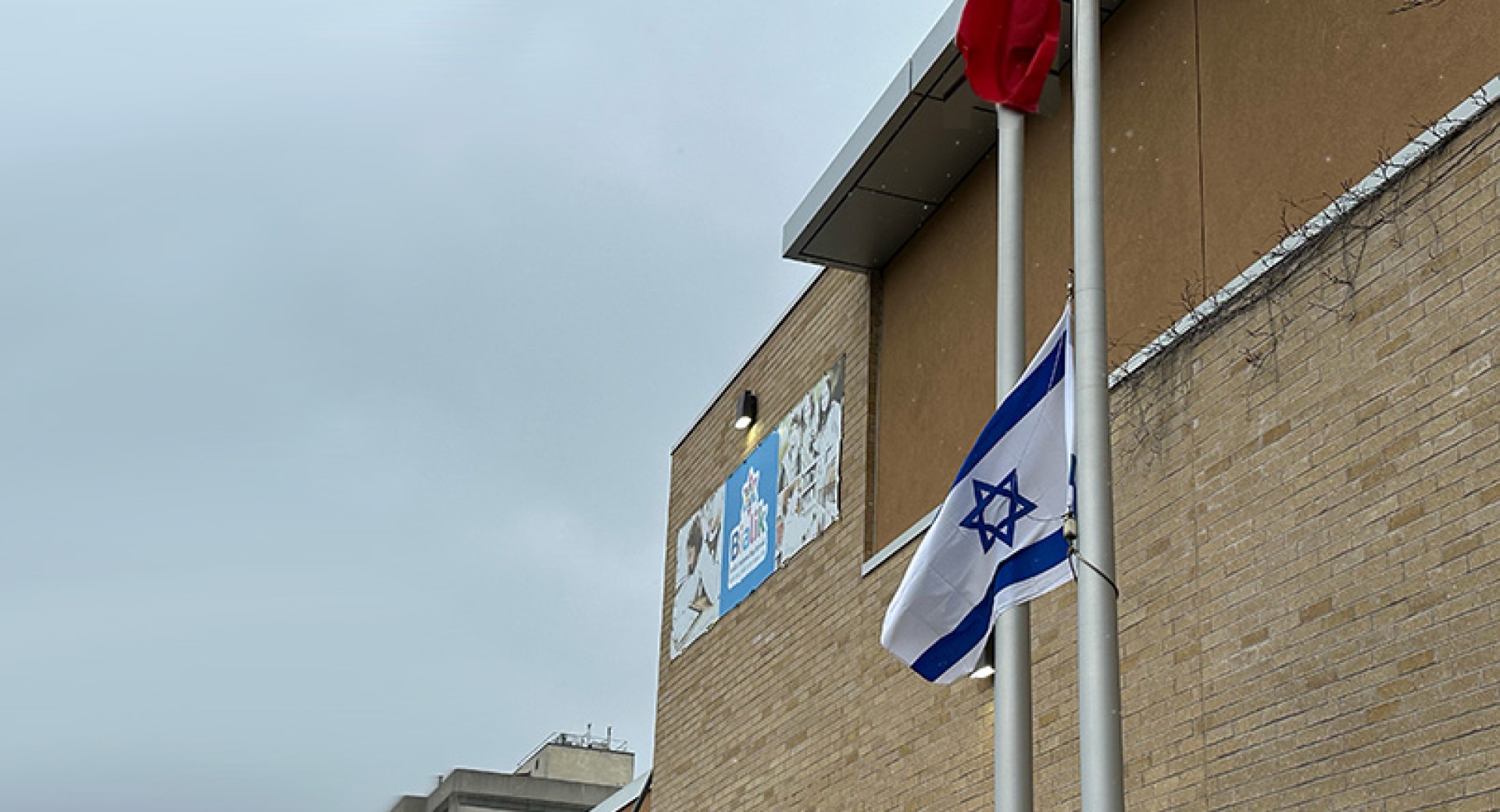
I recall one morning earlier this month walking towards the school filled with joy. Adar Alef had just begun, bringing with it the anticipation of Purim, my favorite Jewish holiday. Adar is known for happiness and good fortune, and the arrival of Adar Alef, occurring only once every two or three years, grants us an additional thirty days of celebration and laughter. That morning was made extra special as I was anticipating meeting with our dedicated staff Purim committee to continue planning the upcoming full school day of Purim festivities — a rare treat made possible this year by the lucky coincidence of the holiday falling on the weekend.
But as I looked up before entering the building, my excitement was overshadowed by a solemn sight that has become part of our daily tapestry: the Israeli flag hung at half-mast, a now 164-day-long reminder of the harsh reality surrounding us since the tragic events of Black Saturday, אסון שמחת תורה, October 7. Without warning, a wave of anger, frustration, and deep sadness washed over me — emotions we've been carrying for far too long.
We are in a time of profound turmoil as Israel grapples with the complexities of an existential war. Our hearts ache for our loved ones across the seas, while closer to home, the unsettling and horrifying surge of antisemitism reaches record-breaking heights and stirs echoes of the darkest chapters of our history.
It's a stark contrast, this extended joy of entering Adar Alef shadowed by heavy grief and so much uncertainty. How do we, if at all, begin to reconcile these conflicting emotions? Can we, or do we even dare attempt, to navigate the delicate balance between joy and sorrow, celebration and mourning, at this time? This dichotomy is not unfamiliar to us, carrying a scent of the moments separating the sadness of Yom HaZikaron and optimism of Yom Haatzmaut, or of our bravely donning masks during the pandemic to gather as a community and kickstart a return to ‘normalcy.’ Is this another one of those times when we say to ourselves יהיה בסדר — it will be all right? I believe many share my sentiment when I say, I think not: optimism seems to wane, and normalcy feels like a distant dream.
In challenging times, as someone immersed in Jewish Studies, I find solace in turning to the wisdom of our sages for guidance. We can look to Rabbi Nachman of Breslov who said: “כל העולם כולו גשר צר מאוד, והעיקר לא לפחד כלל” (“The whole world is a narrow bridge, and the most important thing is not to be afraid.”) Despite the hurdles, despite the uncertainty and disinterest in referring to these times as anything close to normal, we can still find courage to press on. Or, we may choose to tune in to Rabbi Abraham Joshua Heschel: “The opposite of good is not evil, it is indifference”. When adversity shows up at our door we mustn’t bury our heads in the sand — we are to stand firm in its face. Or finally, we may take solace in the words of King Solomon, from the Book of קהלת, Ecclesiastes 3:1: “לַכֹּ֖ל זְמָ֑ן וְעֵ֥ת לְכׇל־חֵ֖פֶץ תַּ֥חַת הַשָּׁמָֽיִם:” (“A season is set for everything, a time for every experience under heaven.") While we are surrounded by sorrow and uncertainty, we must remember that nothing is permanent, and that the time will come for this, too, to pass. While we do not know what awaits on the other side of these unprecedented times, we can pray that brighter days lie ahead for our people. Perhaps we cannot afford to have it any other way: for the sake of our ancestors, for our own sakes, and for the sake of our children.
As we navigate these turbulent times together, I hope you join me in drawing inspiration from our heritage. This Adar, let us hold on to hope, to strength, and solace in knowing that change is inevitable. May we hear good news, and may we and all of the People of Israel, including those whom we are all awaiting, be together very soon; then we can truly have a Chag Purim Sameach.
Adi Barel
Associate Director of Jewish Studies
